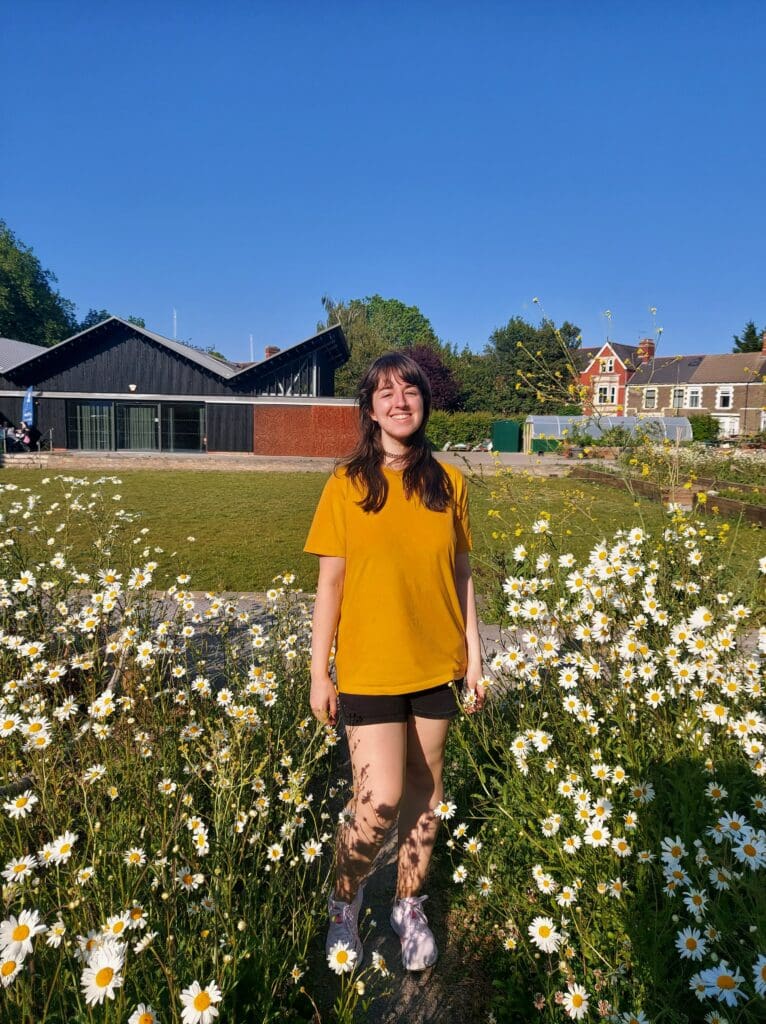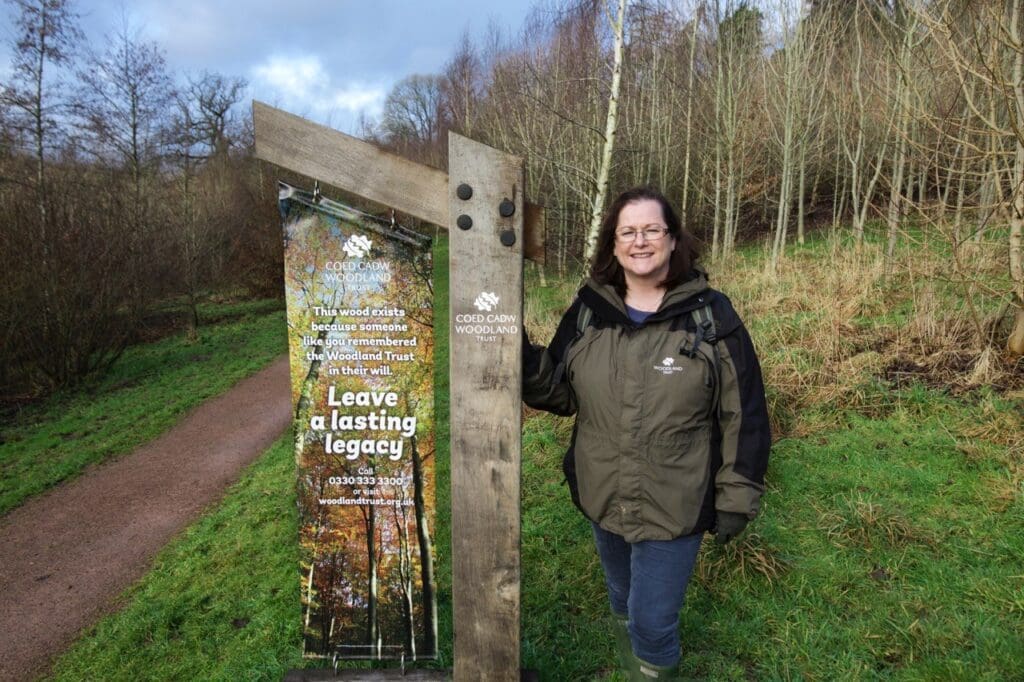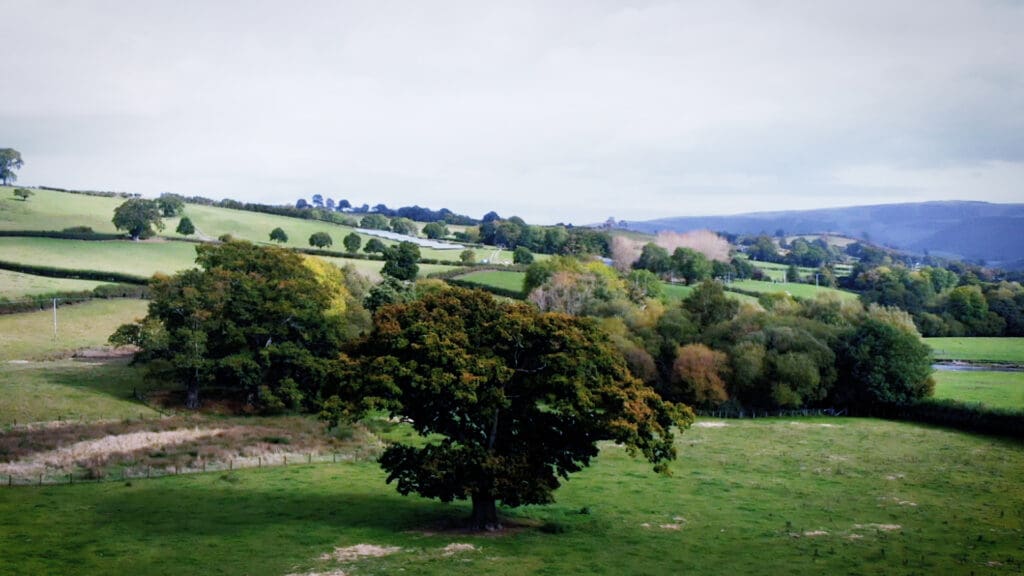That was the message from 25-year-old Tammie Esslemont from Blackwood, speaking to members at the Senedd as part of an event organised by Coed Cadw, The Woodland Trust in Wales.
The event centred around the launch of a new report from Coed Cadw, Trees & Woods: At The Heart Of Nature Recovery In Wales, which sets out the argument for a ‘Townscapes and Treescapes’ Nature Recovery Program. The report was presented by a panel of practitioners from organisations working to recover nature across the rivers, hills, woods and farms of Wales including Afonydd Cymru, the Celtic Rainforest Alliance, Stump up for Trees, Keep Wales Tidy and Cefn Coch Farm.
Tammie, who volunteers with the Woodland Trust and sits on the charity’s Youth Council, opened the event by explaining, “Right now, young people like me are feeling trapped. Although our time on Earth has really just begun, we can see that trees, plants and wildlife are all declining within our communities. A concrete jungle is developing around us, with less and less space available for the nature we love.”

Jerry Langford, Policy Lead at Coed Cadw added, “The Welsh Government has already declared a nature emergency, and now is the time for action. Our new report is a ready guide for policy makers and local government members, which focuses on what is most needed to see the return of nature. It is crucial that everyone works together, underpinned by actions that only the government can lead.”
Wales is currently one of the most nature-depleted countries in the world, ranking 224 out of 240 countries on the Biodiversity Intactness Index. Just 9% of Wales’ native woods in favourable ecological condition and one third of all woodland species in rapid decline; ancient woodland is even rarer. Covering only 4.5% of Wales’ land surface, a third of this has been over-planted with non-native conifers (including areas of globally rare temperate rainforest).
Coed Cadw’s new report, Trees & Woods: At The Heart Of Nature Recovery In Wales, sets out ten key steps which need to be taken to restore nature in Wales. It outlines the need to better protect woods and trees, restore more wooded habitats to good ecological condition, and create new native woods and trees to form wildlife-rich mosaics with other habitat types.
Speaking at the event, practitioners from organisations working to recover nature across the rivers, hills, woods and farms of Wales added their support for the measures outlined in the new report:
“Our rivers are in crisis; at the moment our rivers are green, our rivers are brown, our rivers are grey, and some of them are even foaming. Species, habitats and water quality are all in decline, and salmon are facing extinction. Tree planting is one of a variety of measures that could support ecological resilience in our rivers.” – Gail Davies-Walsh, Director at Afonydd Cymru.
“The sites across Wales with record-breaking diversity are places where old trees are surrounded by land kept open by grazing animals. Agroforestry research consistently shows benefits to farming, from soil improvement to better animal health and welfare. Collaborative, landscape level projects can be crucial, not just in helping farmers access funds, but also in building relationships across generations, communities and landscapes.” – Farmer Joe Hope, Cefn Coch Farm.
“Eco schools planted a remarkable 8,040 trees in schools all over Wales, – rural schools and urban schools, in well-off areas and in less well-off areas – with the long-term aim of ensuring every child in Wales has access to valuable green space. These initiatives really are important, not least because they support biodiversity and Wales’s wonderful wildlife, but because they also give young people an opportunity to learn about and engage with the natural world in a practical way.”– Owen Derbyshire, Chief Executive at Keep Wales Tidy.
“Temperate rainforests in Wales are of international importance, and vital for biodiversity. But these woods are not supporting the diversity or abundance of species they could and should. Now is the time to act to protect and restore these irreplaceable habitats in Wales.”– Adam Thorogood, Project Officer at Celtic Rainforest Alliance.
“Network and partnership building is essential to develop successful approaches to nature recovery, and must include farmers, land managers and communities who risk being excluded. By taking a consensus approach and designing a project through the input of multiple parties, these multiple drivers cease to be barriers and become ways of informing restoration design. To do this on a landscape scale, we need the ability to put boots on the ground, to invest in people and time.” – Dr Jenny Knight, General Manager, Stump up for Trees.
As well as outlining the strategies needed to kick start nature recovery in Wales, Coed Cadw’s report also warns that we are the last generation who has the time left to act.
Addressing Senedd members, Tammie implored, “We ask that you prioritise restoring nature by bringing together communities and people from all backgrounds to save our wildlife – because our differences lead to innovative and unique ideas. We need your help in ensuring that the generation after us won’t have to continue to watch our beautiful trees and wildlife wither away.”

Natalie Buttriss, Director of Wales at Coed Cadw concluded, “This is a crisis which has accelerated within the lifetimes of many of our political leaders. Now we’re asking them to act and invest in the restoration of these irreplaceable habitats. Our report sets out what needs to be done – and we hope there is an appetite amongst political leaders to deliver what’s urgently needed.”
Speaking at the event in response to the Coed Cadw report, Minister for Climate Change Julie James said, “There are a lot of challenging recommendations for myself and my officials to consider in this report. And all of them, I’m pleased to say, are important issues for the Programme for Government. We are absolutely, firmly committed to the protection of ancient Woodlands and indeed, individual trees as well.”

